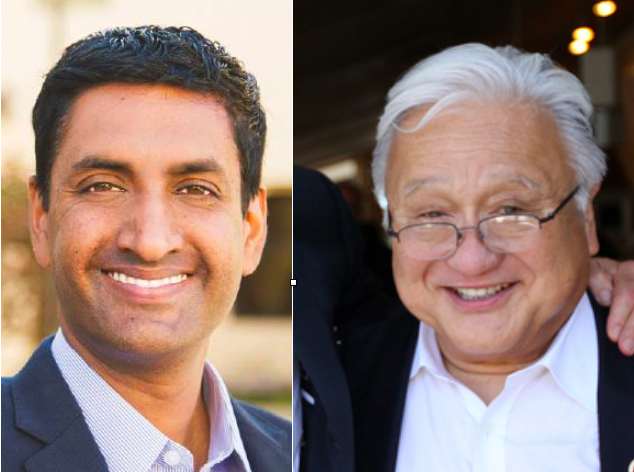
Days after his defeat by seven-year Democratic incumbent Congressman Mike Honda, Ro Khanna and his team have begun analyzing where his campaign went wrong, perhaps even strategizing for success should he decide to run for office again in two years.
Khanna said he had underestimated his bankroll and voter turnout, according to the San Jose Mercury News.
For starters, Khanna admitted that it might have served him better if he had used greater discretion with regard to the timing and context in which he used the funds in his campaign war chest. Despite having raised almost double what Honda had, Khanna spent the crux of his money in May (before the June primary). That left him with very little ammo in October to shoot back at Honda following a TV ad that distorted Khanna’s stances on Social Security and tax issues, notes the Mercury News.
“I do think that hurt us by a few points,” Khanna said.
Second, Khanna’s use of Obama-style technology of crunching numbers based on voters’ interests on issues — and subsequently using the analyses to canvas door-to-door — did not prove as fruitful as he had hoped. Obama had used data from millions of voters nationally, whereas Khanna’s Silicon Valley district had 296,000, and only half of those voters physically showed up at the polls.
“When the election is this close, obviously you think about a lot of things, like, ‘Maybe if I’d knocked on 9,000 doors instead of 6,000,” Khanna said.
Khanna lost by approximately 4,000 votes. Khanna garnered a good deal of traction, considering that Honda already had a strong grass-roots base in place, with support from the Democratic Party and labor unions that have for years backed the seasoned political vet.
However, according to San Jose State political expert Larry Gerston, Khanna’s model could prove victorious if he were to try his hand at the 17th district congressional seat again, notes the Mercury News. “I would not be at all surprised to see this model attempted again. The Silicon Valley model is: If it doesn’t work the first time, tweak it and try it again.”
Honda, 73, has stated that this victory will not be his last. He stated on Friday that he plans on living until he is 103 and expressed his intent to run for reelection again in two years. That gives him plenty of time to move into the district he represents. Honda said in April that he can’t afford to move into his district, citing soaring housing costs, an ever-present theme in California’s Silicon Valley region.
Follow Adelle Nazarian on Twitter @AdelleNaz.

COMMENTS
Please let us know if you're having issues with commenting.